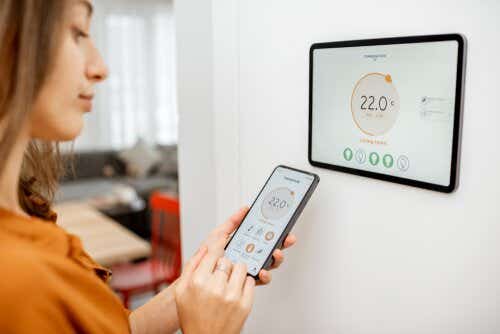What is collective energy purchasing?
Collective purchasing refers to a group of consumers getting together via a third party to buy a specific plan from a gas and electricity supplier. The idea is that a group will be able to negotiate better deals from the energy provider than an individual household could.
Collective purchasing schemes first became popular in 2012 following endorsement from the government. After the initial fanfare, many of the schemes failed to take off as expected.
However, in recent years there has been renewed interest in the practice, particularly in the wake of energy market volatility making individual domestic energy switching all but impossible.
How does collective switching work?
In most cases, the first step in any collective energy switching or collective purchasing scheme is to bring together a group of people interested in the project – this group can be made up of residents of one building block or households within a council region.
Once a pre-determined number of people have signed up to the scheme, the scheme closes and a reverse auction for the energy supplier and plan is carried out. A reverse energy auction means energy suppliers who want to supply the group will bid against each other. Whichever supplier offers the best deal is selected by the organisation running the scheme.
The reason the plan is decided after registration for the scheme has closed is so that the group’s energy needs can be assessed, and a plan can be chosen that suits the energy needs of the majority of that group. In most cases, the registrants to the scheme are under no obligation to take up the deal (but be sure to ask before signing up). Once the plan is announced, they can decide whether it is worth switching to.
Should I take part in a collective switch?
An important thing to note about collective switching is that you don’t have to take part in one to switch to a better energy deal. You can compare energy deals using your household’s specific needs at any time with price comparison sites like Uswitch.
The benefits of taking part in a collective switch scheme are best found when the group is made up of like-minded and/or similar individuals. That way, everyone’s energy needs (such as saving money) or goals (such as going green) can best be reached with one, collective plan. These types of deals might also be more attractive to groups living in more rural areas, where distribution costs can be higher. Individually, a cheap deal may be harder to find, but by banding together to collectively receive energy from the same supplier, a cheaper price could be negotiated as the benefit to the provider is higher.
If you’re thinking of joining a collective switching scheme, the DECC provided a handy list of questions to ask of the third party negotiator when collective switching first took off:
Is this service free?
How long will the entire process (registration, bidding, switch process, etc) take?
When do I need to sign up by?
When will I hear back about the deal?
What benefit do you plan to secure for me?
How will I know your offer is better than my current plan?
I am already on a fixed plan, will I have to pay an early exit fee?
I'm in debt to my current supplier - is that ok?
Will the terms and conditions of the deal be made clear to me?
Which suppliers do you plan/do you expect to bid?
Do you receive a commission if I switch?
Will my information be safe? Will it be given out for other uses?
Will I have options on payment methods?
Am I obligated to switch if I sign up?
The DECC also recommended double checking that the negotiated plan is the cheapest deal for you by visiting a price comparison site.
Can I switch energy supplier today?
Yes, you don’t need to wait for a collective switching scheme before you can save money on your energy bills. Simply run a quick energy comparison by popping your postcode into the box below and we’ll show you what gas and electricity plans you can switch to and save money with.
All you need to get started is your address and maybe a copy of your latest energy bill to refer to.
We’ll then show you the best energy deals available to you in your area. We’ll also show you a number of different types of plans, ranging from fixed plans to variable options.
When you find a plan you want to switch to just enter your details, including your payment details if you want to set up payments by Direct Debit, and let us handle the rest. We send the switch request to your new and old supplier so you don’t have to worry.



